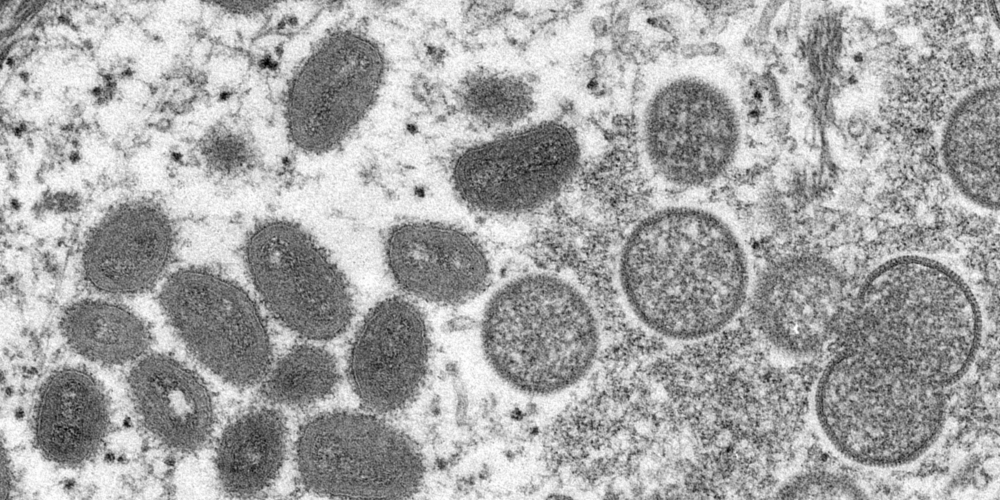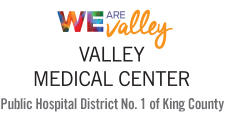Share your perspective and help improve the health of our community! We are conducting a Community Health Needs Assessment (CHNA) to help us better understand the health needs of the community our health system serves. Learn more and take the short survey.
Monkeypox (MPV) Advisory

What You Need to Know
About the Monkeypox Virus (MPV)
On August 4, 2022, the U.S. Department of Health and Human Services declared the Monkeypox virus (MPV) a public health emergency. We have seen cases of MPV spreading in King County and the state of Washington, though the state has not yet declared the situation an emergency.
You can see the latest count of MPV cases in Washington here.
People with MPV will get a rash or ulcers around their face, hands, feet, arms, chest, genitals, or anus. The rash will go through different stages, including scabs, before it heals, which typically takes 2-4 weeks. Some people experience flu-like symptoms before or after developing the rash.
According to the CDC, possible symptoms include:
- Fever
- Chills
- Swollen lymph nodes
- Exhaustion
- Muscle aches and backache
- Headache
- Respiratory symptoms (e.g. sore throat, nasal congestion, or cough)
Click here to see photos of rashes that have been caused by MPV.
If you are immune compromised, you are not considered more likely to become infected with MPV. However, if you do become infected and you are immune compromised, you are more likely to experience more severe symptoms of MPV.
If you believe you have symptoms of MPV, you should contact your primary care provider (PCP) for evaluation. If you do not have an established PCP, you can schedule an appointment in one of our Urgent Care Clinics. Valley Urgent Care and Primary Care clinics offer telehealth appointments, which are preferred for assessment of MPV.
According to the Washington Department of Health, you can spread MPV from the start of symptoms until the rash is fully healed. If you test positive for MPV, have been in close contact with someone who has MPV, or are displaying MPV symptoms, the DOH recommends that you:
- Separate yourself from other people and from animals (mammals).
- Restrict family, friends, or other visitors to those with an essential need to be in the home.
- Wear well-fitting medical mask when in close contact with others at home.
- Stay home except for getting health care.
- Remain separate until the rash is gone, all scabs have fallen off, and the skin below is healed.
- Do not share bedding, towels, dishes, or utensils.
- Wash your own laundry and dishes.
- Routinely clean and disinfect commonly touched surfaces and items.
- Have somebody else take care of animals (mammals) like pets and livestock.
- Avoid use of contact lenses to prevent inadvertent infection of the eye.
- Avoid shaving rash-covered areas of the body as this can lead to spread of the virus.
- Do not use commercial travel (airplane, bus, taxi, shared car).
- Do not kiss, hug, cuddle, sleep, or have sex with others.
There are no treatments specifically for MPV infections, and in most cases, if you test positive for MPV, you will be advised on how to treat the symptoms.
Monkeypox may be treated using a drug that was developed to treat smallpox. It is called Tecovirimat and is known by the brand name TPOXX.
Valley is participating in a study using an experimental medication for the treatment of MPV, for high-risk individuals. If you have been diagnosed and are interested in this antiviral treatment, please reach out to your primary care provider for further evaluation.
If you’ve been exposed to MPV, getting a vaccine within a few days could prevent infection.
Valley has an extremely limited supply of MPV vaccine for patients who currently have a Valley primary care provider and are at high risk of contracting MPV or have a known exposure.
There is also a limited amount of vaccine available in the community. Public Health – Seattle & King County is prioritizing vaccine distribution for those who meet the following criteria:
- People who have had sexual, close intimate contact or other high risk close contact with someone who has tested positive for monkeypox.
- Gay, bisexual, or other men or transgender people who have sex with men AND at least one of the following:
- Multiple or anonymous sex partners in the last 3 months
- Have had syphilis or gonorrhea in the prior year
- Have used methamphetamine in the last 3 months
- Attended a bathhouse, public sex venue, or group sex (sex including at least 3 people at the same time) in the last 3 months
- Experiencing homelessness/unstable housing (including living in a shelter, car, group/congregate setting; living with friends or relatives; couch surfing) in the last 3 months
- Being incarcerated currently or in the last 3 months
- Black, Hispanic/Latinx, Native Hawaiian and Other Pacific Islanders, Asian, Indigenous, or American Indian/Alaska Native.
- Sex workers of any sexual orientation or gender identity.
Vaccination is not currently being recommended for members of the public who are not considered at high risk of exposure to MPV.
Additional MPV resources:

